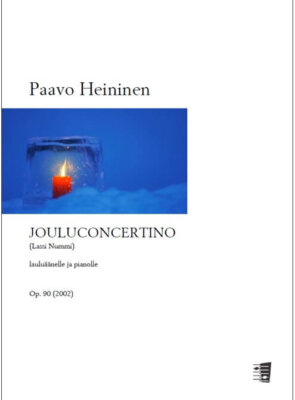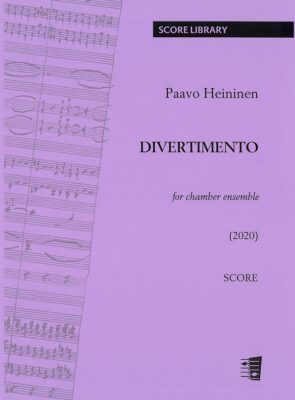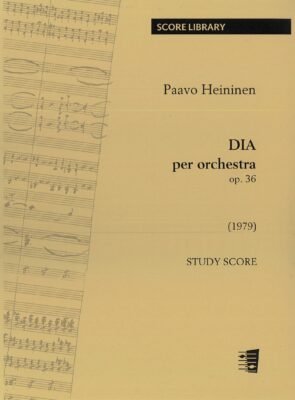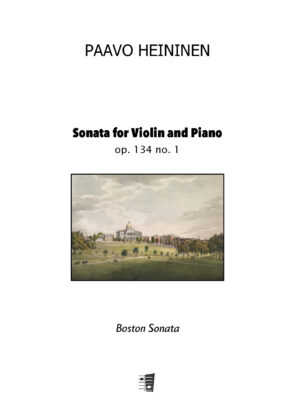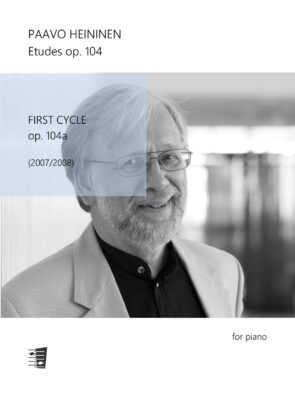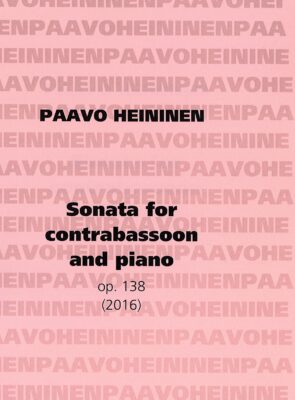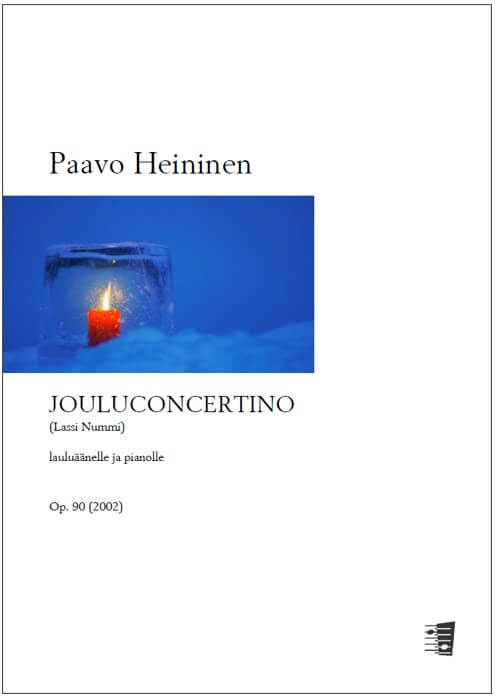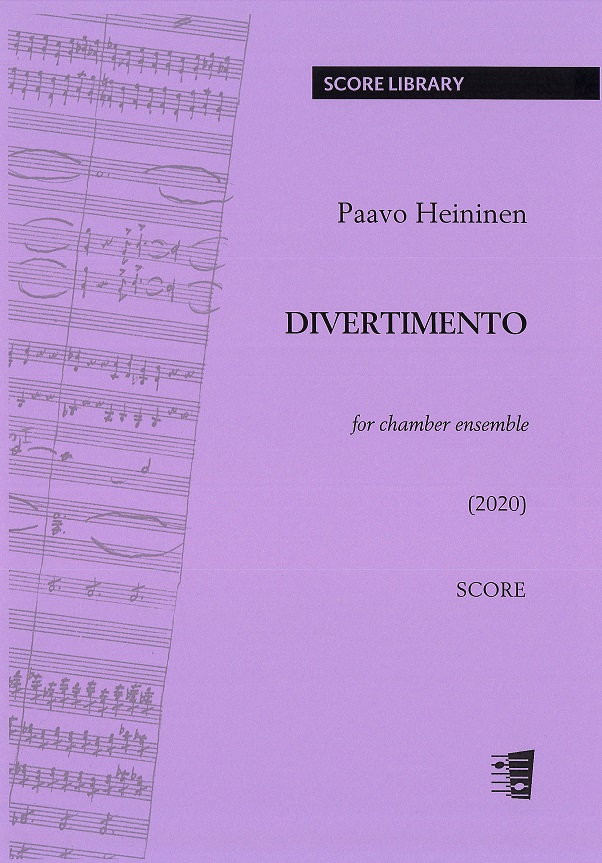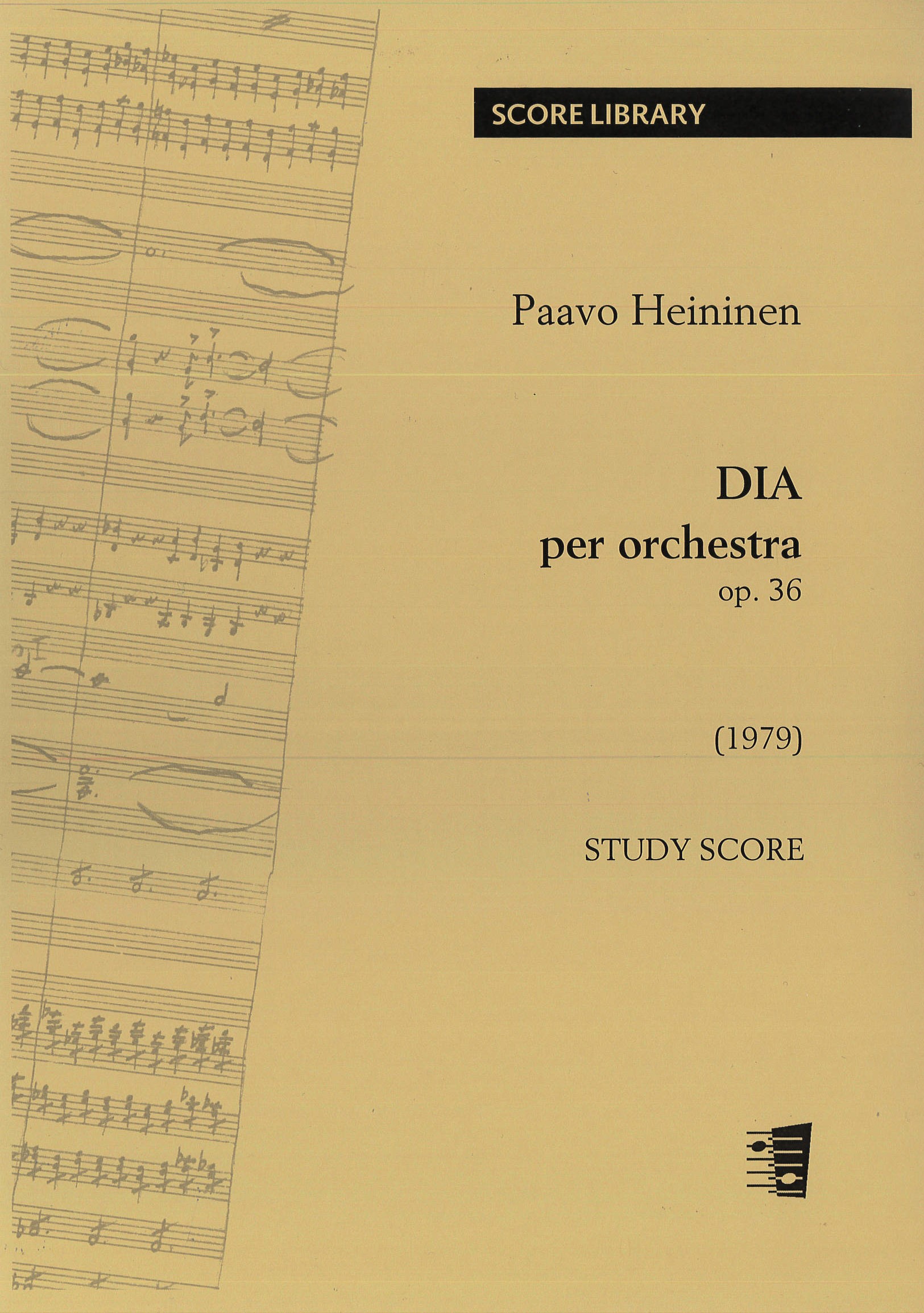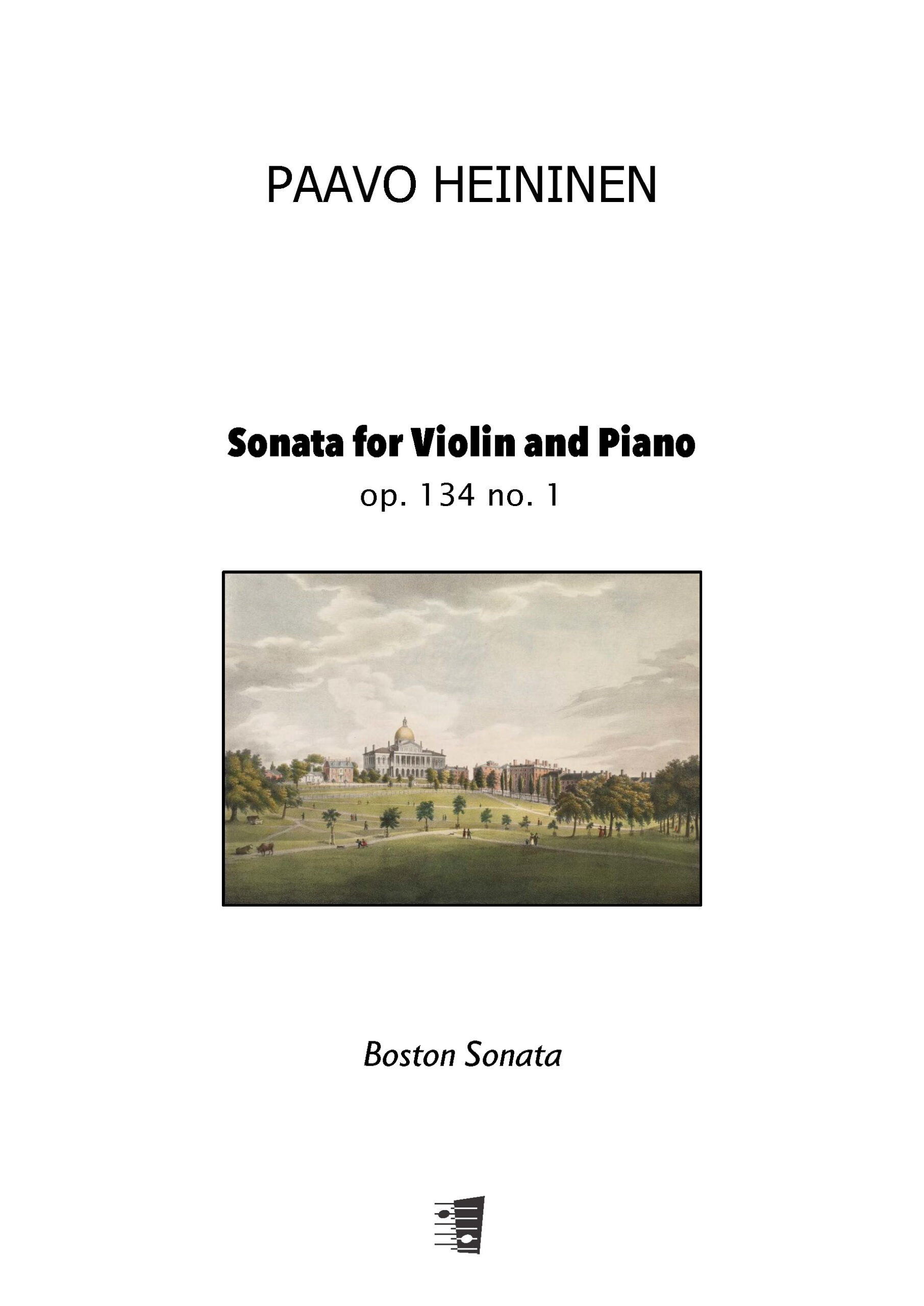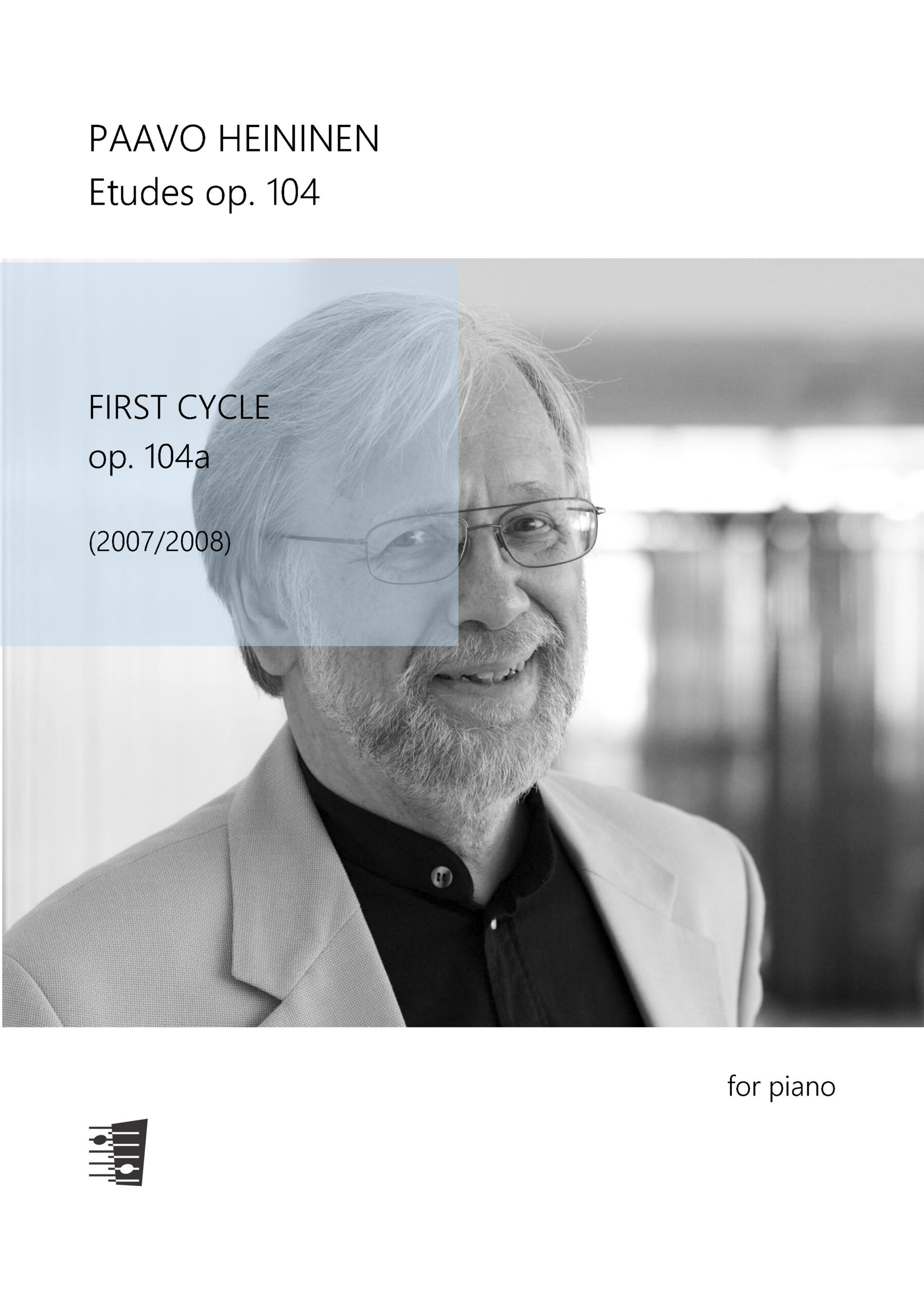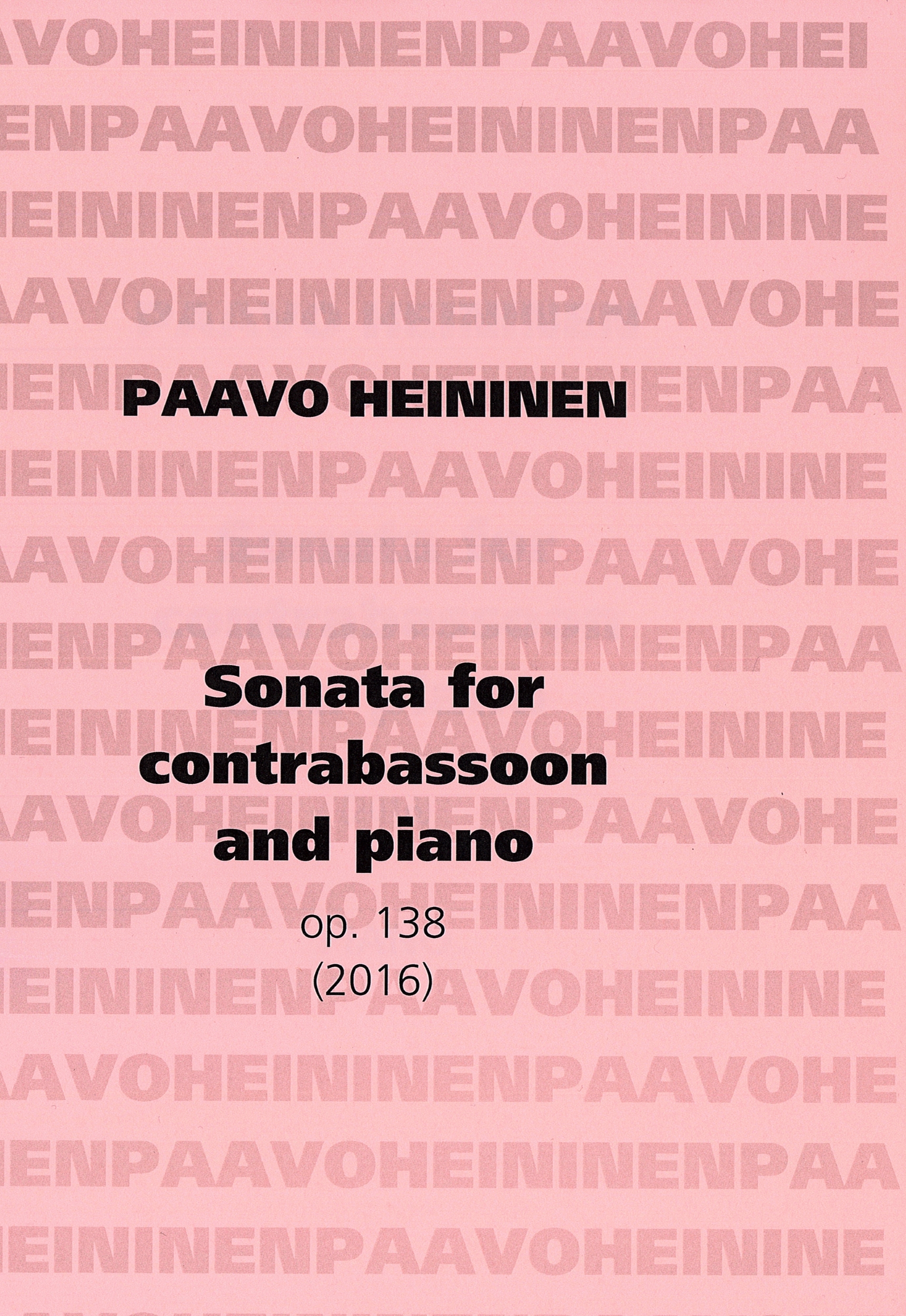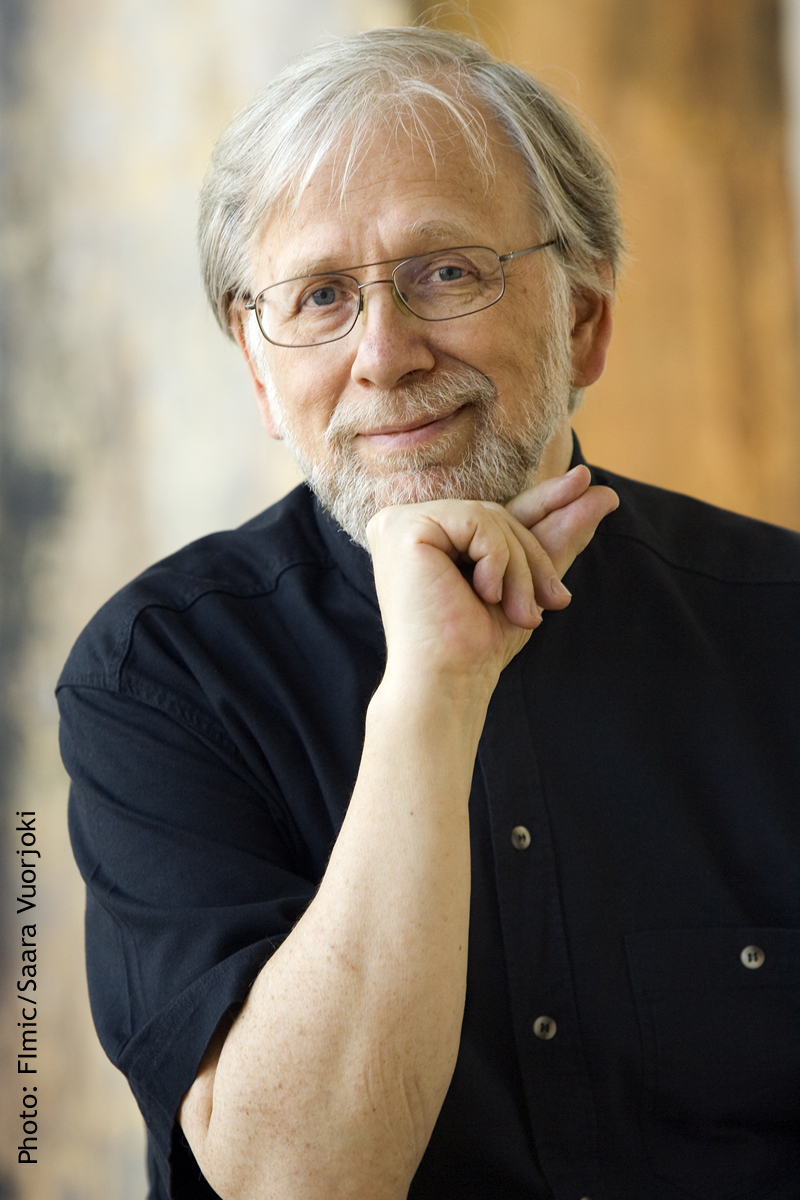
Heininen, Paavo
Paavo Heininen (1938-2022) was a composer, essayist, pianist and teacher. A highly revered figure in Finnish musical circles, he was known as a prolific composer of symphonies and other orchestral works, chamber music, vocal music and piano pieces. He also guided a generation of young composers as Professor of Composition at the Sibelius Academy during a teaching career of more than forty years.
His natural starting point was from the beginning modernism. According to him, there is no need to change direction since to him, modernism means being open to all the possibilities that exist.
Vocal music was, however, perhaps closest to Heininen’s heart because of his passion for texts: the marriage of word and music was, in his opinion, something unique, allowing the composer and the poet to express more together than they could ever do alone. Heininen composed two operas during the 1980s: Veitsi (The Knife, 1985-88) and Silkkirumpu (The Damask Drum, 1981-83).
Heininen’s work list contains eight symphonies, dating from different stages in his career. According to him “the symphonies have been an important domain in my career, I might even say the main one”. The fifth symphony was commissioned by the Finnish Broadcasting Company, and the sixth was premiered in 2015 by the Helsinki Philharmonic Orchestra. The Symphony No. 7 was premiered by the Finnish Radio Orchestra on 26. November 2021. The Symphony No. 8 has not been performed yet.
According to Heininen, composing for the stage vitally influenced the way he thought about the symphony. His ‘symphonies’, in the sense of a credo or a foray into new territory, have actually been the Adagio…concerto per orchestra in forma di variazioni… (1963/66) and DIA (1979), that is to say orchestral works that were generically classified as ‘concerto for orchestra’. The Damask Drum, subtitled ‘concerto for singers, players, words and images’ in fact has the same function, on an even greater scale and with weightier meaning. The most important work in Heininen’s catalogue in recent decades would in this sense be the oratorio Te Deum Creaturae (Opp. 92, 77, 93), the first half of which (Kaukametsä) was premiered by the Finnish RSO.
Heininen started exploring electro-acoustic music during the latter half of the 1970s. His key works from that period include the tape composition Maiandros (1977) and the orchestral Dia (1979). During the 1990s the stylistic spectrum expanded resulting in two “jazzy” works for big band (Wolfstock and Bookends, 1996-97).
The reconstructions of works by Aarre Merikanto, his former teacher, constitute a chapter in themselves in Heininen’s output. In his violin concerto Tuuminki (A Notion, 1993) Heininen inhabits the world of Merikanto, and indeed the title continues with the words “of what might have been Aarre Merikanto’s 3rd Violin Concerto”. In the Flute Concerto Autrefois (2008/10) Leevi Madetoja serves as an approximate model. Autrefois was born of the essence of Madetoja, but his world has been allowed to expand a bit over the stylistic horizon of his day.
Paavo Heininen has also produced a wealth of instrumental and chamber music, among them string quartets, Discantus I for alto flute, Poesia squillante ed incandescente – Sonata per pianoforte, Piano Trio Op. 91 and Variations for organ. He has also composed duos for every orchestral instrument and piano, sonatas for various instruments and several solo pieces for piano and organ. Some of his works cover an entire concert program, such as Mazurki for piano, the Finnish Song Book, Opus sylvanum (Palmgren Variations) and the Piano Etudes.
Heininen’s other orchestral works include e.g. the large Opus 66 (Music for Strings) containing a number of dance-like suites in 2-8 movements, Violin Concerto (1999), Concerto for Piano and Orchestra No. 4 (2004-05) and Organ Concerto Aiolos (2012-13) – a nine-movement, 90-minute offshoot of the Bruckner-Mahler tradition. One of the latest orchestral works is the Sinfonia Concertante de Camera Michaelmas (2018).
Aarre Merikanto: String Sextet
(1932 rev 1993)
for string sextet
2vn/2va/2vc
Duration: 22
Aarre Merikanto: Symphonic Study
Aarre Merikanto: Sinfoninen harjoitelma (1928/1981)
for orchestra
3333-4331-str
Duration: 18
Adagio
...Concerto per orchestra in forma di variazioni.. (1963 rev 1966)
for large orchestra
4(III+picc;IV+afl)4(IV+ca)4(I-IV+asax;II+bcl+tsax)3(III=cfg)-6430-06-pf-cel-cemb-str(min.12-10-8-8-6)
Duration: 22
Affetto (Diptyykki)
(2002)
for small orchestra
12(II=ca)11-asax-1100-str(min.44321)
Duration: 7
Aiolos
Concerto for Organ and Symphonic Band (2014)
for organ and symphonic band
3(III=picc)3(III=ca)3(III=bcl)3(III=cfg)-4sax(AATB)-4331-barhn "Aiolos and Anemone" 1. Stasis (7'00) 2. Toccata / Valse (9'00) 3. Flumen (7'00) 4. MP (3'00) 5. Largo appassionato (15'00) 6. Capriccioso / Drammatico (MP 2) (3'30) 7. Passacaglia (10'00) 8. Corale (15'00) 9. Allegro con fuoco (9'00) The work can also be performed in two parts with a short interval: 1st part: movements 3, 6, 8 2nd part: movements 1, 2, 4, 5, 7, 9 The work can also be performed in three smaller sections (each section can also be performed separately): Concertino A: movements 1, 5, 2 Concertino B: movements 3, 6, 8 Concertino C: movements 4, 7, 9
Duration: 80
Arioso
(1967)
for string orchestra
str(min.66542)
Duration: 8
Attitude
(1980)
for orchestra
3333-4330-03-hp-pf-str
Duration: 11
Autrefois
Concerto for Flute and Orchestra (2008/2010)
for flute and orchestra
2211-2000-hp-str
Duration: 33
Bookends
(1996–97)
for big band
5/4/4-pf-guit-db-drs
Duration: 19
Cantico delle creature
(1968)
for baritone and orchestra
2221-2200-10-hp-str
Duration: 20
Concerto for Clarinet
(2016)
22(II=ca)11-2000-10-pf-str
Duration: 25
Concerto for Piano No. 4
(2005)
for piano and orchestra
3(III+picc)3(III=ca)3(III=bcl)3(III=cfg)-asax-4330-14-hp-pf(+cel)-str
Duration: 55
Concerto for String Orchestra
(1959 rev 1963)
for string orchestra
str(min.66532)
Duration: 18
Concerto for Violin and Orchestra
(1999)
for violin and orchestra
22(II=ca)22-asax-2220-02-hp-pf(+cel)-str
Duration: 38
Deux Chansons
Concerto for Violoncello and Orchestra (1976)
for violoncello and orchestra
2(II+picc)221-2200-02-pf-str Percussion: Snare drum, Bongos, Cymbals, Tam-tam ad lib., Marimba, Vibraphone, Xylorimba ad lib., Bells, Triangle, Claves, Maracas
Duration: 16
Dia
(1979)
for orchestra
2222-2220-12-pf-str Percussione: I: Glockenspiel, silofono, 3 bongos, casse di legno, piatto sospeso, marimba, triangolo, Temple blocks, tamburo militare, cymbal étouffée, maracas, guiro, tam-tam II: Vibrafono, 3 tamburo, maracas, casse di legno, castagnette, triangolo, claves, bonogs, tam-tam, piatto sospeso, cymbal étouffée, raganella
Duration: 27
Fanfaareja / Fanfares
(1996–97)
0000/2330 (1), 0000/2411 (2), Big Band (3), 3332/4330/00 strings (4)
Duration: 10
Five Lightnings
(1998)
for small orchestra
1111-1100-01-hp-str(min.44432) Percussion: Snare drum, Tambourino, Bongo (small, or timbale), Cymbals a2, Suspended cymbal, Triangle, Castanet, Temple block 1. Adagio "...de noche y de luz" [str] 2. Gavotte "...de perdre et de trouver" 3. à la Mazur "...vom Müssen und von Mögen" 4. Lamento largo "...of day and of shadow" [1111-1100-hp-str] 5. Polka "...om att hinna och att rymmas" [1111-1100-01-str]
Duration: 20
Floral View with Maidens Singing [SALES MATERIAL]
Tyttöjen kävely ruusulehdossa (1982)
for string orchestra
str
Duration: 13
Gentle Dances
(1994/2003)
for small orchestra
12(II=c.ing)2(II=altsax)1-1100-01-hp-str
Duration: 25
Kaukametsä
(2002)
for mixed choir and orchestra
chorus (SATB) + 1.2(II=c.ing).2(II=altsax).1-1.1.0.0-0.1-hp-pf-str
Duration: 13
Kiasma
(1998)
for winds
3 + 4 Fanfares for 9 instruments: 111, asax, 1/1111
Duration: 17
Kun ja Jos (Vakavia lauluja)
(2012)
for voice and chamber orchestra
2.2(II=c.ing).2(II=sax.a).2-2.1.0.0-hp-pf-str
Duration: 0
Lakkamaalauksia
for harp, guitar, mandoline and harpsichord (2012)
Duration: 6
Lamentation and Praise (Diptyykki)
(...niille, jotka ennen meitä...) (1995)
for string orchestra
str
Duration: 5
Love's Philosophy
(1994)
for tenor and string orchestra
str
Duration: 9
Michaelmas
Concerto da Camera (2018)
for two violins and string orchestra
Violini soli 1-2, str(min.33221)
Duration: 22
Mikä ilta, mikä valaistus
(1999)
for ensemble
fl, ca, cl, 2 vl, vla, vc, db, pf
Duration: 4
Murasaki in casa ando
(1998)
for chamber orchestra
1111-1110-01-hp-pf-string quintet
Duration: 11
Musique d'été
(1963 rev 1967)
for ensemble
fl(+picc).cl(+alto sax)-perc(2)-vln.vc
Duration: 20
Pyhäaamu Suomen Lappeenrannassa
(2018)
for orchestra
2(II+picc).2(II=c.ing).1.1-2.1.1.0-1.0-hp-str
Duration: 11
Rauhan Fanfaari (a2)
(2015)
2.2.4(III,IV=a.sax).2-2.2.2.1-0
Duration: 5
Rauhan Fanfaari (a3)
(2015)
3.2.5(III,IV,V=a.sax).3-3.3.3.1-0
Duration: 5
Reality
(1978)
for soprano and instrumental ensemble
1(+picc)1(+ca)11-1000-01-pf-str(10110) Percussion: Side drum, Tom-toms, Bongos, Cymbals, Crotales, Glockenspiel, Marimba, Vibraphone, Tubular bells, Triangles, Claves, Castanets, Wood blocks, Temple blocks, Cowbells, Maracas, Flexaton, Quero, Vibraslap, Raganella, Whip, Steel sheet, Jingle bells, Shell chimes, Bamboo rattle
Duration: 30
Silkkirumpu / The Damask Drum
...concerto for singers,players,words,images&movem (1981-83)
for 4 major, 4 minor roles, mixed chorus, ballet and orchestra
2222-2220-05-hp-pf-str
Duration: 80
Sinfonietta
(1996/2000)
for string orchestra
str
Duration: 20
Soggetto
(1963)
for chamber orchestra
1(=fl.alto).1.2(II=a.sax).1-1.1.0.0-0.1-pf-str
Duration: 8
Symphony No. 5
(2003)
for orchestra
3333-4330/3/01/1/ cel/str
Duration: 30
Symphony No. 6
(2013/2015)
for orchestra
3(III+picc).3(III=c.ing).3(III=cl.b).4sax(SATB).3(III=c.fg)-4320-13(Piatto, Guero, Maracas, Gong, Triangle, Xilofono, Vibrafono))-pf.cemb-2hp-str
Duration: 35
Symphony No. 7
(2020)
for orchestra
3333-4sax(SATBar)-4331-13-2hp-pf-cemb-str
Duration: 32
Symphony No. 8
(2021)
for orchestra
3333-4sax(SATBar)-4331-13-2hp-pf-cemb-str
Duration: 32
Three Beings
(1994–97)
for string orchestra
str
Duration: 14
Three Proceedings
(1994-96)
for orchestra
1221-1100-01-str
Duration: 21
Tripartita
Drei Orchesterstücke
3332 4330 12 1, pno, str
Duration: 19
Tuuminki
A Notion (1993)
for violin and orchestra
2222-2211-cel-str
Duration: 23
Two Essays / Kaksi Esseetä
(1994-96)
for string orchestra
str
Duration: 14
Two Movements / Kaksi liikettä
(1994-95)
for string orchestra
str
Duration: 15
Une Sourire - Un Sphinx
A Birthday Greeting to HCF (1998)
for string orchestra
str
Duration: 3
Veitsi / The Knife
Opera in Two Acts (1985-88)
for 5 major, 14 minor roles, mixed chorus, ballet and orchestra
4(I&III+picc;IV+afl)3(III=ca)3(III=bcl&tsax)3-asax-43(III+flghn)30-04-hp-pf-str
Duration: 140
Veitsi. Monologi III "Sininen": Hildur
I näytös, 2.5a
opera excerpt
4[Picc.2.3.AFl] 3[1.2.EngHn] 3[1.2.BCl] ASax 2 — 2 2 0 0 — 3Perc Kbd Harp — Strings
Duration: 0
Symphony No. 5
Finnish RSO, cond. Sakari Oramo
(YLE/Elävä arkisto)


